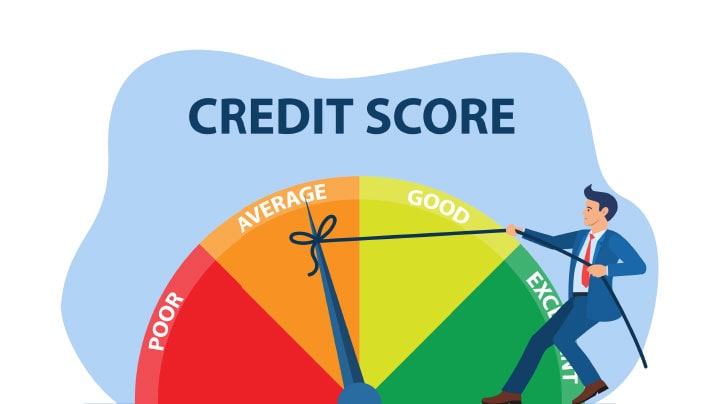
Factors affecting Credit Score
1.Payment History : The most important factor while calculating your credit score is payment
history. Any missed payment, be it big or small, impacts your credit
score negatively. Not only does your score drop, but lenders also take
it as a sign of a possible default behaviour from you in the future. So
maintain a good score, ensure you make timely payments on your loans and
credit cards.
2. Credit Utilisation: Credit utilisation stands for the total amount of your credit limit
(all credit cards put together) which you have spent in a month, divided
by the combined credit limit you have on all your cards.
3.Length of Credit History: While calculating your credit score, bureaus don’t consider your age,
but they do consider how many years it has been since the first time
you took a loan or a credit card and when you took your newest loan or
credit card. They also consider the average age of all your credit
accounts (loans + cards) combined. The older the age of your first
credit account, the better it is.
4. Mix of Credit : Mix of credit refers to the type of accounts that show up on your
credit report. There are two types of credit accounts - instalment based
(loans) and revolving (credit cards). A mix of both these types of
credit accounts shows the lender your ability to manage various kinds of
credit products and hence are a good customer to lend to.
5. New Credit : The number of new credit accounts you have opened in the recent past, along with the credit products you have applied for currently, make up your new credit.
Every time you apply for a new loan or credit card, the lender will make a hard inquiry. A hard inquiry is one where the lenders pull your credit report from the bureaus to check your credit score and hence creditworthiness. Unlike a soft inquiry (where you pull your score yourself) which doesn’t affect your credit score, too many hard inquiries in a short time frame can negatively impact your credit score.
How to Improve my Credit Score ?
- Always pay your dues on time
- Keep your credit balances low
- Apply for new credit in moderation
- Maintain a healthy credit mix of secured (such as home loan, auto loan) and unsecured loans (such as personal loan, credit cards).
- Monitor your co-signed, guaranteed and joint accounts monthly
- Review your credit history frequently throughout the year
- Correct any errors if any.
Comments
Post a Comment